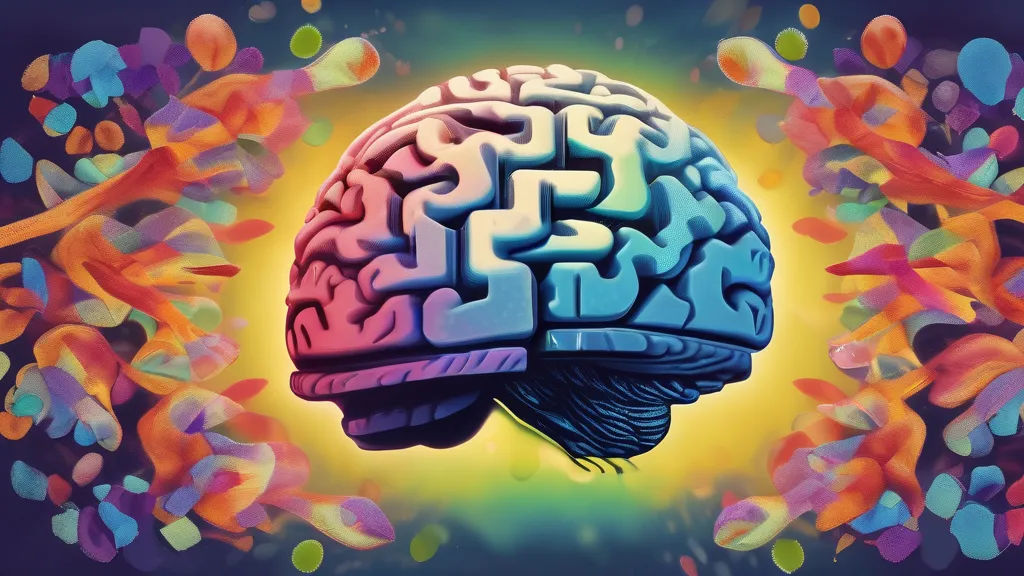Unlocking the Past: How Mental Time Travel Could Revolutionize Memory Retrieval
Exploring the Science and Potential of Reviving Forgotten Memories

- Investigates the role of context in memory retrieval.
- Discusses recent research on memory rejuvenation via mental time travel.
- Examines the implications and future directions for memory research.
Introduction: The Enigma of Forgotten Memories
In the vast and intricate landscape of the human mind, memories are the threads that weave together our past, shaping who we are today. Yet, the fragility of memory is a haunting truth we all face; memories fade, become distorted, or slip away entirely. But what if our forgotten memories are not truly lost, and can instead be rekindled through a process known as “mental time travel”? Recent research published in the Proceedings of the National Academy of Sciences offers intriguing insights into this possibility, suggesting a revolutionary approach to memory retrieval that could alter our understanding of the mind.
The Science of Memory: Context is Key
Memory is inextricably linked to the context in which it was encoded. This is why certain smells, sounds, or sights can suddenly trigger vivid recollections of past experiences. The mechanism behind this phenomenon lies in the brain’s ability to associate specific contextual cues with memories, making retrieval more accessible when these cues are present. However, despite the significant role of context in memory recall, the exact process by which memories are forgotten—or potentially rejuvenated—remains a complex puzzle.
Recent Discoveries: The Rejuvenation Hypothesis
In a groundbreaking study led by a team of German scientists, the concept of “mental time travel” was put to the test. The researchers hypothesized that by mentally transporting oneself back to the moment a memory was encoded, it would be possible to rejuvenate the memory, restoring its retrievability and altering its rate of forgetting. To investigate this hypothesis, the researchers recruited 1,216 participants for two distinct experiments.
Experimentation and Findings
Participants were divided into groups and tasked with recalling either a word list or a passage they had read. Some groups employed “context reinstatement”—a technique involving the recollection of thoughts and feelings from the time of encoding—while others did not. The results were telling. Participants who used mental time travel exhibited a “rejuvenation” of their memories, with a retrieval trajectory closely mirroring that observed shortly after initial encoding.
Interestingly, this rejuvenation effect was most pronounced when the time between encoding and recall was short, such as 4 or 24 hours, compared to longer gaps of 7 days. This suggests that while memories can be revived, the window for optimal rejuvenation may be limited.
Perspectives on Memory Rejuvenation
The study’s findings provide a new lens through which to view memory recall, likening it to the myth of Sisyphus. Just as Sisyphus eternally rolls his boulder uphill, only for it to roll back down, memory rejuvenation involves reviving memories temporarily, with the potential for them to fade again over time. The researchers argue that if context reinstatement were merely a transient phenomenon, its effects would dissipate quickly, rendering memories indistinguishable from those without reinstatement attempts.
Real-World Implications and Future Research
While this study offers promising insights, it’s crucial to acknowledge the limitations and consider the broader implications. Laboratory settings cannot fully replicate the rich, complex contexts in which real-life memories are formed. Future research must explore whether the rejuvenation effects observed in controlled environments translate to more authentic scenarios.
Moreover, understanding whether certain types of memories—particularly those with significant emotional or personal relevance—are more amenable to rejuvenation could open new avenues for therapeutic interventions, particularly for individuals with memory-related disorders.
Counterarguments and Skepticism
Despite the excitement surrounding these findings, some experts urge caution. Critics highlight the need for more longitudinal studies to understand the long-term impact of mental time travel on memory retention. Additionally, the ethical implications of memory manipulation warrant careful consideration. As researcher Dr. Emily Carter notes, “We must tread carefully to ensure that our pursuit of memory enhancement does not inadvertently lead to unintended consequences.”
Conclusion: A New Frontier in Memory Science
The potential to rejuvenate forgotten memories through mental time travel represents a tantalizing frontier in cognitive science. As we continue to unravel the mysteries of the human mind, this research invites us to reexamine our assumptions about memory and its malleability. Could this approach one day lead to breakthroughs for individuals with Alzheimer’s or other memory impairments? While the path forward is fraught with challenges, the possibilities are as vast as the mind itself.
In conclusion, the quest to unlock the secrets of memory continues to captivate scientists and laypeople alike. As we navigate this uncharted territory, we must remain vigilant in balancing innovation with ethical responsibility. What are your thoughts on memory rejuvenation? Could this research change how we perceive the past, or is it a fleeting glimpse into a complex cognitive process?
References
- Proceedings of the National Academy of Sciences
- Karl-Heinz T. Bäuml et al, “Reinstating memories’ temporal context at encoding causes Sisyphus-like memory rejuvenation,” Proceedings of the National Academy of Sciences, 2025. DOI: 10.1073/pnas.2505120122
Call to Action
Join the conversation: Share your thoughts on memory rejuvenation in the comments below, and consider supporting independent science journalism to keep groundbreaking research accessible to all.